Arecibo Observatory scientists help unravel surprise asteroid mystery
Sunday, 26 June 2022 05:13 When asteroid 2019 OK suddenly appeared barreling toward Earth on July 25, 2019, Luisa Fernanda Zambrano-Marin and the team at the Arecibo Observatory in Puerto Rico jumped into action.
After getting an alert, the radar scientists zoned in on the asteroid, which was coming from Earth's blind spot - solar opposition. Zambrano-Marin and the team had 30 minutes to get as many radar readings a
When asteroid 2019 OK suddenly appeared barreling toward Earth on July 25, 2019, Luisa Fernanda Zambrano-Marin and the team at the Arecibo Observatory in Puerto Rico jumped into action.
After getting an alert, the radar scientists zoned in on the asteroid, which was coming from Earth's blind spot - solar opposition. Zambrano-Marin and the team had 30 minutes to get as many radar readings a NASA EXPRESS Racks achieve 1 million hours of service on ISS
Sunday, 26 June 2022 05:13 NASA science research on the International Space Station reached an extraordinary milestone June 14.
The vital, versatile EXPRESS Racks - properly known as "EXpedite the PRocessing of Experiments to the Space Station" multipurpose payload shelving units - logged 1 million hours of combined powered duty on station. That's the equivalent of nearly 115 years' worth of scientific research comp
NASA science research on the International Space Station reached an extraordinary milestone June 14.
The vital, versatile EXPRESS Racks - properly known as "EXpedite the PRocessing of Experiments to the Space Station" multipurpose payload shelving units - logged 1 million hours of combined powered duty on station. That's the equivalent of nearly 115 years' worth of scientific research comp Curiosity latest drilling attempt a success - Sols 3514-3516
Sunday, 26 June 2022 05:13 The MSL team is very happy this week, because our first drill attempt since last November was successful! This Front Hazcam image shows the drill being extracted from the new drill hole, which is surrounded by drill tailings as expected.
This is one of several times in MSL's mission that drilling had to be re-designed to overcome an anomaly, again requiring lots of careful planning and tes
The MSL team is very happy this week, because our first drill attempt since last November was successful! This Front Hazcam image shows the drill being extracted from the new drill hole, which is surrounded by drill tailings as expected.
This is one of several times in MSL's mission that drilling had to be re-designed to overcome an anomaly, again requiring lots of careful planning and tes Multiple Lab Analyses of Antarctic Minerals Offer a Better Understanding of Mars
Sunday, 26 June 2022 05:13 Results of multiple and complementary lab analyses of minerals found in samples of material from Antarctica could give scientists a better understanding of the surface and subsurface environment of Mars, and indicate locations of potentially habitable subsurface locations, says a new paper by Planetary Science Institute Research Scientist Elizabeth C. Sklute.
Samples of intermittent brine
Results of multiple and complementary lab analyses of minerals found in samples of material from Antarctica could give scientists a better understanding of the surface and subsurface environment of Mars, and indicate locations of potentially habitable subsurface locations, says a new paper by Planetary Science Institute Research Scientist Elizabeth C. Sklute.
Samples of intermittent brine Efficient satellite downlink with a Ka band dual circular polarization transmitter
Sunday, 26 June 2022 05:13 Low earth orbit (LEO) satellites are being increasingly used for environmental monitoring of the earth, as well for logistic purposes, such as the navigation of maritime vessels. The data transmitted from the satellite terminals to the receivers on Earth, known as "downlink," is steadily increasing and, as a result, requires new frequency domains.
In this regard, the Ka band for satellite
Low earth orbit (LEO) satellites are being increasingly used for environmental monitoring of the earth, as well for logistic purposes, such as the navigation of maritime vessels. The data transmitted from the satellite terminals to the receivers on Earth, known as "downlink," is steadily increasing and, as a result, requires new frequency domains.
In this regard, the Ka band for satellite U.K. government announces new space sustainability measures
Saturday, 25 June 2022 19:15
The British government announced a series of measures June 23, from regulations to funding active debris removal projects, intended to make the country a leader in space sustainability.
The post U.K. government announces new space sustainability measures appeared first on SpaceNews.
NASA asteroid mission on hold due to late software delivery
Saturday, 25 June 2022 09:11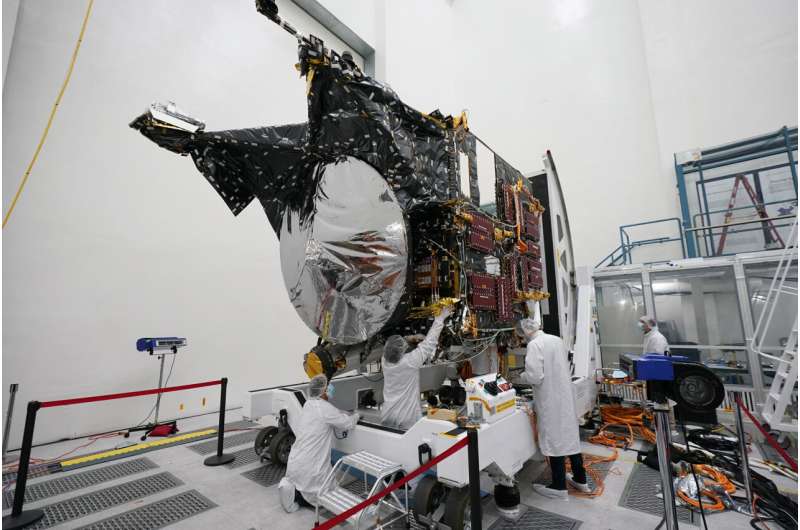
New head of Space Force acquisitions looks to get back to basics
Friday, 24 June 2022 21:03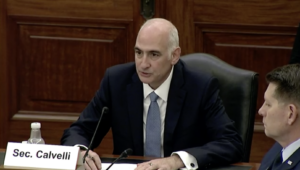
Frank Calvelli, assistant secretary of the Air Force for space acquisition and integration, told SpaceNews one of his priorities is to impose discipline in procurement programs
The post New head of Space Force acquisitions looks to get back to basics appeared first on SpaceNews.
Telespazio to play key role in satellite servicing market
Friday, 24 June 2022 20:13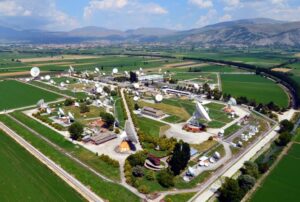
Telespazio intends to play a key role in the future in-orbit servicing market, providing customers seeking satellite relocation, refueling, repair or removal with the necessary space and ground-based capabilities.
The post Telespazio to play key role in satellite servicing market appeared first on SpaceNews.
Software testing problem delays Psyche launch
Friday, 24 June 2022 19:40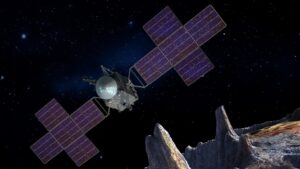
NASA’s Psyche asteroid mission will not launch this year as previously planned after the agency concluded there was not enough time to complete testing of the spacecraft’s software before its launch window closes.
The post Software testing problem delays Psyche launch appeared first on SpaceNews.
Telesat requests UK license to connect Lightspeed terminals
Friday, 24 June 2022 19:22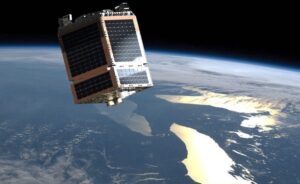
Telesat has applied for a U.K. license to connect broadband terminals with Lightspeed satellites it plans to start deploying in 2025 to low Earth orbit.
The post Telesat requests UK license to connect Lightspeed terminals appeared first on SpaceNews.
Space Force establishes intelligence unit to put sharper focus on orbital threats
Friday, 24 June 2022 16:55
The Space Force on June 24 established Space Delta 18, a unit that will run the National Space Intelligence Center at Wright Patterson Air Force Base
The post Space Force establishes intelligence unit to put sharper focus on orbital threats appeared first on SpaceNews.
NASA Announces Launch Delay for Psyche Asteroid Mission
Friday, 24 June 2022 16:41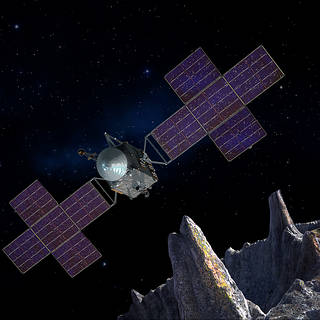 NASA announced Friday that the Psyche asteroid mission – the agency’s first mission designed to study a metal-rich asteroid – will not make its planned 2022 launch attempt.
NASA announced Friday that the Psyche asteroid mission – the agency’s first mission designed to study a metal-rich asteroid – will not make its planned 2022 launch attempt. NASA declares SLS countdown rehearsal complete
Friday, 24 June 2022 16:22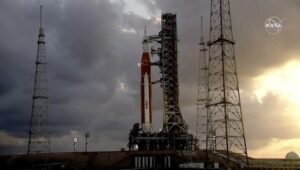
NASA managers say they have completed testing of the Space Launch System after a recent countdown rehearsal and are ready to move into preparations for a launch as soon as late August.
The post NASA declares SLS countdown rehearsal complete appeared first on SpaceNews.
NASA's Lunar Reconnaissance Orbiter spots rocket impact site on moon
Friday, 24 June 2022 15:45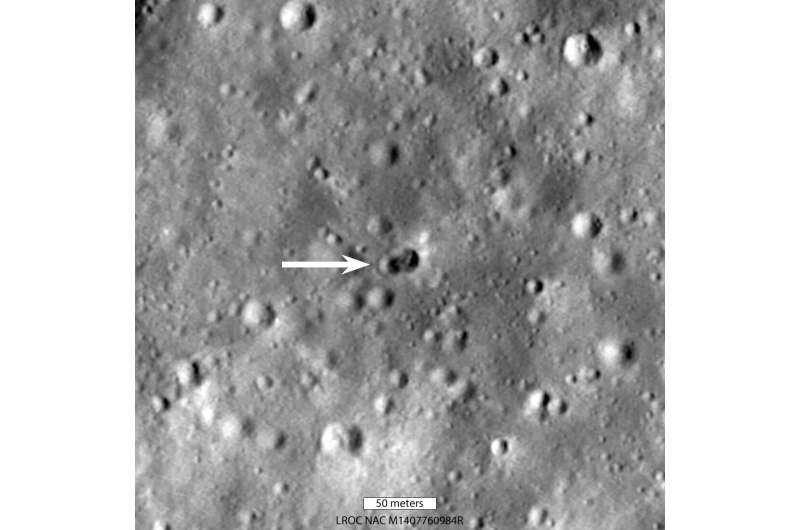
Astronomers discovered a rocket body heading toward a lunar collision late last year. Impact occurred March 4, with NASA's Lunar Reconnaissance Orbiter later spotting the resulting crater. Surprisingly the crater is actually two craters, an eastern crater (18-meter diameter, about 19.5 yards) superimposed on a western crater (16-meter diameter, about 17.5 yards).
The double crater was unexpected and may indicate that the rocket body had large masses at each end. Typically a spent rocket has mass concentrated at the motor end; the rest of the rocket stage mainly consists of an empty fuel tank.

